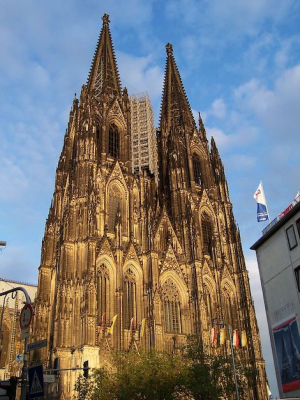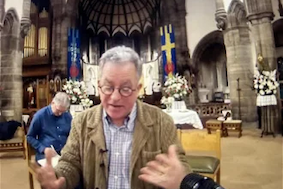Pope voices concern for developments of Church in Germany

Cologne Cathedral - Wiki Image
Source: Vatican News
Pope Francis has responded to a letter from four German women involved in their national synodal process. Moral theologian Katharina Westerhorstmann, theologian Marianne Schlosser, philosopher Hanna-Barbara Gerl-Falkovitz, and publicist Dorothea Schmidt wrote to the Pope expressing doubts and fears about the results of the German Synodal Path.
In his letter, dated 10 November, the Holy Father said he too is concerned "about the numerous tangible steps with which large portions of this local Church continue to threaten to move further away from the common path of the universal Church."
The German process involved 230 delegates, including bishops, priests, laymen, and laywomen, divided into working groups, focusing on issues such as the blessing of same-sex couples, changes in sexual morality, priestly celibacy, clerical power, combating the evil of abuse, the role of women, with particular attention to a female diaconate and the possibility of the priestly ordination of women. All these themes were consolidated in the four documents presented in March.
The four former delegates of the Synodal process said they are particularly concerned about the idea of establishing a synodal committee "aimed at preparing the introduction of a directive and decision-making council."
Referring to this in his letter, Pope Francis emphasized that such a body, "as outlined in the relevant text of the decision, cannot be harmonized with the sacramental structure of the Catholic Church."
He then recalled that its establishment "has been prohibited by the Holy See with a letter dated 16 January 2023, specifically approved by me," wrote the Pope.
In the letter, he also recalled his Letter to the Pilgrim People of God in Germany, (see link below) published on 29 June 2019: a ten-page document divided into thirteen points, in which the Bishop of Rome called on the leaders of the Church in Germany to walk the correct path, that of the Gospel, without falling into functionalist drifts or ideological reductions.
The Letter was also mentioned in the declaration of the Holy See on 21 July 2021, clarifying that the synodal process cannot make doctrinal decisions.
It does not have the "authority to obligate bishops and the faithful" to "new forms of governance and new doctrinal and moral approaches," the text stated, concluding with the hope that the proposals of the German path could merge into the synodal path of the universal Church.
Recalling his important document, the Pope wrote in his letter that he remains convinced that "the Lord will show us the path."
"Instead of seeking 'salvation' in ever new committees and, with a certain self-referentiality, discussing the same themes, in my Letter to the Pilgrim People of God in Germany, I wanted to emphasize the need for prayer, penance, and worship and invite to open up and go out to meet our brothers, especially those who are abandoned on the threshold of our churches, on the streets, in prisons and hospitals, squares, and cities."
He concluded by thanking Westerhorstmann, Schlosser, Gerl-Falkovitz, and Schmidt for the theological and philosophical work done and for their "witness of faith".
"Please continue to pray for me and for our common concern for unity," he urged.
A meeting on the synodal pathtook place on 26 July in the Vatican between Cardinal Secretary of State Pietro Parolin, several heads of Dicasteries of the Roman Curia, and representatives of the German Bishops' Conference.
This meeting was a continuation of the dialogue initiated with the ad limina visit of the German bishops in November 2022, during which theological and disciplinary issues arising from the Synodal Path were discussed.
One year ago, 62 German bishops had met the Pope for about a week. Concurrently, they had met Cardinal Parolin and other heads of Dicasteries for an unprecedented interdicasterial meeting, defined by the president of the German Bishops' Conference, Bishop Georg Bätzing of Limburg, as "a case of emergency synodality."
At a meeting with the press at the Augustinianum Institute in Rome to report on the proceedings, Bishop Bätzing said he was "relieved" by these talks during which - he emphasized - "everything, everything" had been laid on the table: criticisms, requests, proposals, "concerns from Rome," and perplexities.
Above all, the November 2022 meetings with the Pope and the Curia were an opportunity to clarify that the German bishops have no intention of setting up a "schism."
"We are Catholic," Bishop Bätzing said, "and we want to remain so."
LINK
Pope Francis' Letter to the Pilgrim People of God in Germany. https://plenarycouncil.catholic.org.au/wp-content/uploads/2019/08/LETTER-OF-THE-HOLY-FATHER-FRANCIS-to-Church-in-Germany.pdf


















